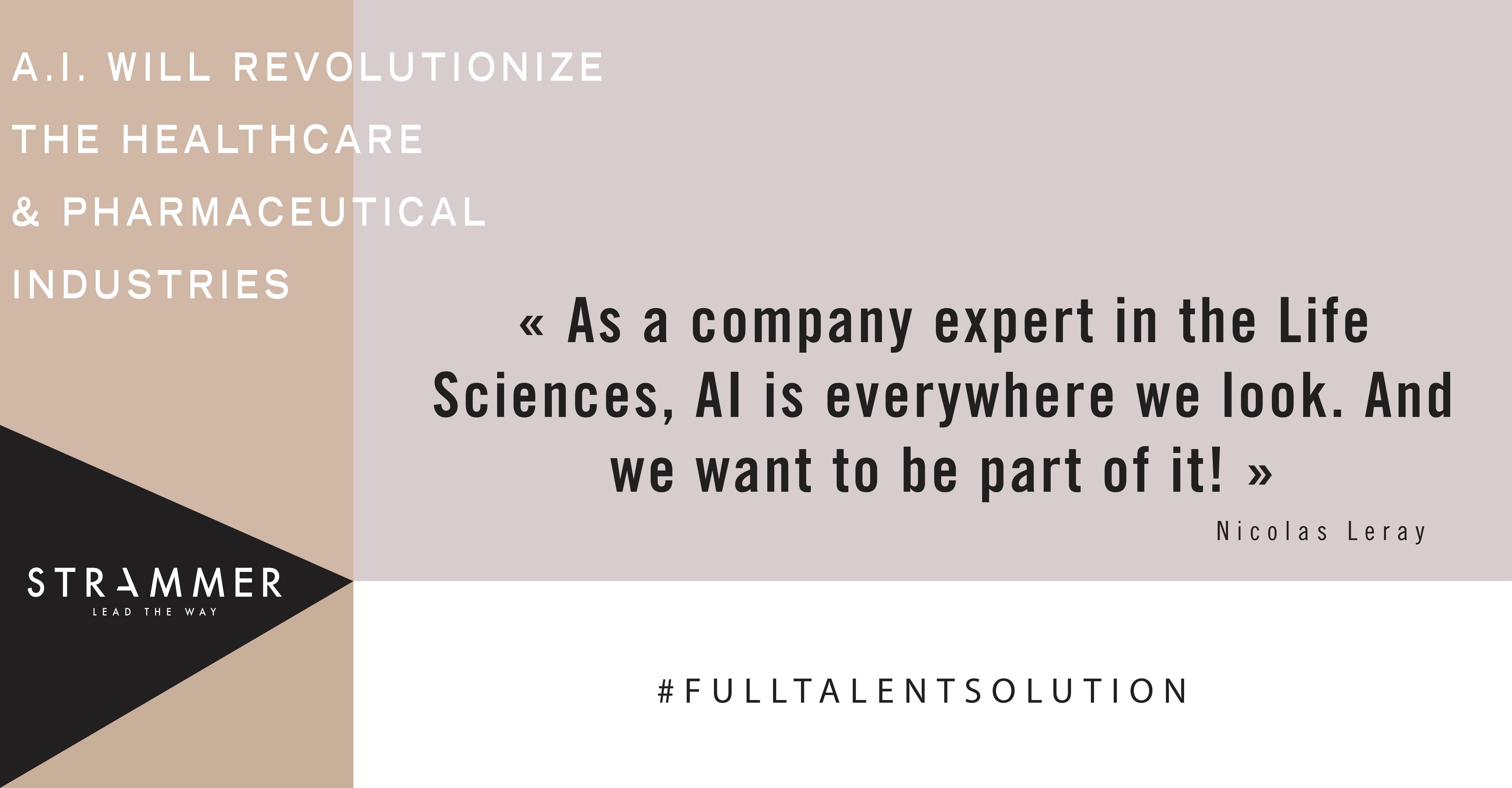March 14, 2018
A.I. will revolutionize the Healthcare & Pharmaceutical Industry
We use Artificial Intelligence throughout our daily lives without even realising it; while driving our cars, using Apple’s Siri, Amazon’s Alexa, and more! With today’s technology we have access to a wide variety of services. For example instead of making an appointment by calling a doctor, you can just chat with a bot on your phone and ask them for help.
AI in the Healthcare and Pharma industry could help patients with their plans and help physicians find better treatment plans (The Medical Futurist, 2018). In the article below we will explore 5 different AI applications.
Snatchbot
Snatchbot‘s mission is to make Chatbots accessible to more people and enterprises simply, quickly, and cost-effectively. But before knowing how Snatchbot has revolutionised the Healthcare industry, we need to understand what a chatbot is? A Chatbot is a computer programme you can talk to, through messaging apps, chat windows, or even by voice. The Chatbot replies using that same application and it creates a back and forth conversation. This enables patients to speak with bots about their personal issues. These bots are able to access data and respond to patients’ requests by connecting with healthcare professionals.
IBM Watson Health
IBM Watson Health partnered with Johnson & Johnson to enhance the Patient Athlete Programme. It is an AI cloud-based system capable of processing high volumes of data and offers. Watson health accelerates the speed of innovation for patients by helping people lead healthier lives. It is a computing project that enables more natural interactions between physicians, data and electronic medical records.
Robotic Surgery
Robotic surgery is a type of minimally invasive surgery. The da Vinci for example is the name of a surgical robot which guides surgeons while performing surgery on patients. It includes a magnified vision system which gives surgeons a 3D HD view of the inside of the patient’s body. These robots are also able to bend and rotate far greater than the human hand. This enables the surgeons’ hand movements to be translated into smaller and precise movements. Overall, robotic surgery includes a number of benefits such as: less trauma on body, minimal scarring, and faster recovery time.
Doc.ai
DeBrouwer founded Scanadu, a personal medical scanner company, came out with « robodctor » called doc.ai. This application takes away one task from doctors with artificial intelligence. It interprets lab results such as blood test, genetic tests and then gradually add different kinds of tests. Instead of a patient going to the doctor to find out his lab results, he/she will be able to converse with a robot on an app. Furthermore, if the patient needs a doctor, the bot will refer him/her to a human doctor.
Building Bionic Hands
Most limb replacements struggle to mimic human gestures. However, after years of engineering, a new bionic hand named bebionic, has the potential to change that. The prosthetic hand includes a camera fitted on it and takes a picture of the objects in front of it. This asses the hand in seeing the shape and size of the objects and enabling to move correctly. Therefore, it shows how machines are far better than humans in making muscle memory calculations, so let’s take advantage of it!
Overall, artificial intelligence has lot of potential. Within the next couple of years, A.I. will revolutionise our daily lives including medicine. Concerning, healthcare, A.I. will redesign it both for patients and physicians for the better!
As the European leader in Talent Acquisition and Talent Management services focused on the development of effective Talent strategies through our Full Talent Solution®, STRAMMER’s international team is focused in finding optimal solutions for our clients worldwide. Here at STRAMMER, we encourage our clients to shift into the world of eHealth as it can create 120 billion euros in annual savings for the healthcare economy (Accenture.com, 2018).
It is a very exciting opportunity for our Consultants and Coaches to help our clients in attracting and developing the talents able to bring AI to a new level. As a company expert in the life sciences, AI is everywhere we look. And we want to be part of it! – Nicolas Leray

, France Managing Director
References:
- Accenture.com. (2018). Artificial Intelligence in Healthcare | Accenture. [online] Available at: https://www.accenture.com/us-en/insight-artificial-intelligence-healthcare [Accessed 8 Mar. 2018].
- Healthcare IT News. (2018). How AI is transforming healthcare and solving problems in 2017. [online] Available at: http://www.healthcareitnews.com/slideshow/how-ai-transforming-healthcare-and-solving-problems-2017?page=6
- Sennaar, K. (2018). AI in Medical Devices – Three Emerging Industry Applications –. [online] TechEmergence. Available at: https://www.techemergence.com/ai-medical-devices-three-emerging-industry-applications/ [Accessed 8 Mar. 2018].
- The Medical Futurist. (2018). Artificial Intelligence Will Redesign Healthcare – The Medical Futurist. [online] Available at: http://medicalfuturist.com/artificial-intelligence-will-redesign-healthcare/





